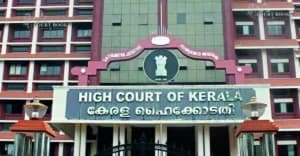On April 8, the Supreme Court overturned a Punjab and Haryana High Court order that had directed musician Vishal Dadlani and political commentator Tehseen Poonawala to pay ₹10 lakh each for their social media remarks against Jain Saint Tarun Sagar, despite the High Court having already quashed the FIR registered against them.
A Supreme Court bench comprising Justice Abhay S. Oka and Justice Ujjal Bhuyan observed that the High Court’s decision to impose such costs was unwarranted, especially after concluding that no criminal offence had been made out against the petitioners.
“Perusal of the impugned judgement shows that the High Court upheld the fundamental right of the appellant of freedom of speech and expression guaranteed under Article 19(1)(a) of the Constitution of India. After holding that no offence was made out against the appellant, there was no question of imposing cost on the appellant and other petitioner,” the Supreme Court stated.
Read Also:- SC To Decide If 'Regulate' In Sectio 79(1) Of Electricity Act Includes Trade Regulation In Power Sector
The apex court emphasized that courts are not meant to act as moral watchdogs and criticized the High Court for comparing the social contributions of the Jain monk to those of Dadlani and Poonawala.
“We are of the view that after finding that absolutely no offence was made out when exercising jurisdiction under Section 482 of the CrPC, High Court ought not to have exercised advisory jurisdiction by telling the appellant that the contribution made by the priest was much more than what the appellant and the other accused have contributed. Function of the court is not to do moral policing,” the bench remarked.
Further, the Supreme Court pointed out that the High Court failed to apply the well-established legal principle of “costs to follow the event,” which usually means that the losing party bears the legal costs.
“Perhaps High Court was swayed by the fact that the appellant and the other accused made criticism of a priest belonging to a particular religion,” the bench observed, expressing concern over possible bias in the original ruling.
Read Also:- Kerala High Court Asks State to Submit Justification for Court Fee Hike, Declines to Stay the Amendment
Background of the Case:
The case stemmed from Vishal Dadlani’s tweets criticizing Jain monk Tarun Sagar’s nude appearance and the Haryana Government’s decision to invite him to address the state legislature. Tehseen Poonawala had also shared a photoshopped image of a semi-nude woman juxtaposed with the monk, raising concerns about social norms and double standards.
Following these posts, an FIR was registered under Sections 153A, 295A, 509 of the Indian Penal Code and Section 66E of the Information Technology Act. However, the High Court eventually quashed the FIR, noting that none of these offences were actually made out in the complaint.
Despite this, the High Court still found the tweets to be insulting to Jain Muni Tarun Sagar and considered them hurtful to the sentiments of the Jain community. As a result, it imposed a hefty penalty, reasoning that the petitioners should refrain from mocking religious leaders for the sake of publicity.
The High Court had commented:
“If the contribution made by the petitioners towards poor people is compared to the contribution made by Jain Muni Tarun Sagar, it is apparent that the petitioners have played a mischief to gain publicity without having much to their credit.”
It also acknowledged that the social media controversy had the potential to spark unrest, but that the Jain monk’s teachings of peace and forgiveness prevented any such outcome.
Interestingly, the complainant had not identified as a Jain follower, and Vishal Dadlani had already apologized publicly to Tarun Sagar, who in turn had forgiven him. Additionally, no followers of the Jain religion had pursued legal action against either of the accused.
Despite these facts, the High Court made the quashing of the FIR conditional upon payment of costs to charitable institutions.
The Supreme Court, however, firmly disagreed with this approach, making it clear that once it was found that no offence had occurred, no such financial penalty should have followed.
Case no. – SLP(Crl) No. 7550/2019
Case Title – Tehseen Poonawalla v. State of Haryana and Anr.














